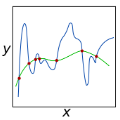Accurate macroeconomic forecasting has become harder amid geopolitical disruptions, policy reversals, and volatile financial markets. Conventional vector autoregressions (VARs) overfit in high dimensional settings, while threshold VARs struggle with time varying interdependencies and complex parameter structures. We address these limitations by extending the Sims Zha Bayesian VAR with exogenous variables (SZBVARx) to incorporate domain-informed shrinkage and four newspaper based uncertainty shocks such as economic policy uncertainty, geopolitical risk, US equity market volatility, and US monetary policy uncertainty. The framework improves structural interpretability, mitigates dimensionality, and imposes empirically guided regularization. Using G7 data, we study spillovers from uncertainty shocks to five core variables (unemployment, real broad effective exchange rates, short term rates, oil prices, and CPI inflation), combining wavelet coherence (time frequency dynamics) with nonlinear local projections (state dependent impulse responses). Out-of-sample results at 12 and 24 month horizons show that SZBVARx outperforms 14 benchmarks, including classical VARs and leading machine learning models, as confirmed by Murphy difference diagrams, multivariate Diebold Mariano tests, and Giacomini White predictability tests. Credible Bayesian prediction intervals deliver robust uncertainty quantification for scenario analysis and risk management. The proposed SZBVARx offers G7 policymakers a transparent, well calibrated tool for modern macroeconomic forecasting under pervasive uncertainty.
翻译:暂无翻译




